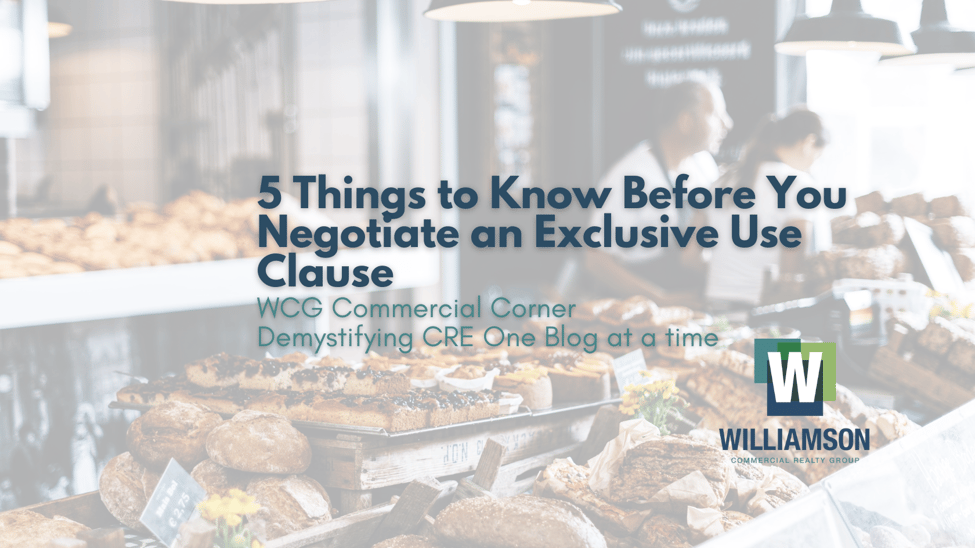(Because "no competition" doesn’t happen by accident)
If you’re leasing retail or service space, you’ve probably heard of an Exclusive Use clause; if you haven’t, we need to talk.
In short, it’s a lease clause that gives your business the exclusive right to sell certain products or services within a property. It prevents the landlord from leasing to another business offering the same core thing. It can be the difference between thriving and sharing a parking lot with your biggest competitor. But here’s the catch: exclusive use isn’t automatic. It’s negotiated, and if you’re not strategic, you could end up with a clause that looks protective but has more holes than a golf course.
Here’s what you need to know before you start that conversation:
1. Define Your Core Offering—Tightly
Be specific. “Exclusive use for food service” is vague. “Exclusive use for espresso-based beverages and fresh-baked goods” is clear. Too broad? The landlord will push back. Too vague? It won’t protect you.
🔑 Get crystal clear on the exact products or services you want covered—and define them in detail.
2. Know Who’s Already in the Building
Landlords can’t retroactively restrict existing tenants. If there’s already a business on site with overlapping offerings, your exclusive use clause will likely exclude them (aka a “carve-out”).
📋 Ask for a current tenant roster and understand what’s already leased, in writing.
3. Ask About Enforcement (and Remedies)
An exclusive clause means nothing if the landlord won’t (or can’t) enforce it. What happens if another tenant violates it? Is there a penalty? A right to terminate? A rent reduction?
🚨 Make sure the lease spells out what happens if your exclusivity is breached—and who’s responsible for fixing it.
4. Watch for Loopholes
Some landlords try to sneak in vague language like “primary use” or “substantial portion” when describing what your competitors can’t do. That leaves a lot of grey area.
🕵️♀️ Your clause should restrict any competing use—not just if it’s their main revenue stream.
5. Timing Is Everything
Don’t wait until the lease is drafted to bring this up. Exclusivity needs to be discussed at the LOI stage or early in lease negotiations. Once terms are locked in, there’s less flexibility.
⏰ Ask early. Negotiate firmly. Protect your space before someone else claims it.
Bottom Line?
An Exclusive Use clause is one of the most effective ways to protect your business from direct competition and one of the most overlooked during lease negotiations.
Done right, it gives your business breathing room, builds customer loyalty, and sets you up for long-term success. Done wrong, it’s a false sense of security.
📩 Want to make sure your lease is airtight before you sign?
Let’s talk exclusivity—before someone else takes your edge.
Susan Williamson
Commercial Realtor – Williamson Commercial Realty
I don’t do cookie-cutter. I do what works, for you.
Built for business. Backed by data. Negotiated with bite.
Client Focused | Solution Driven | Commercial Realtors

